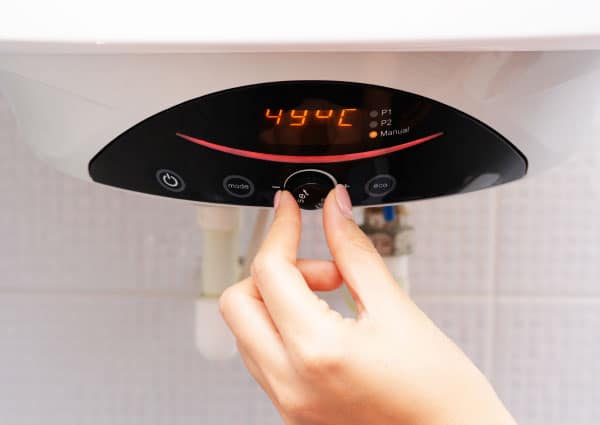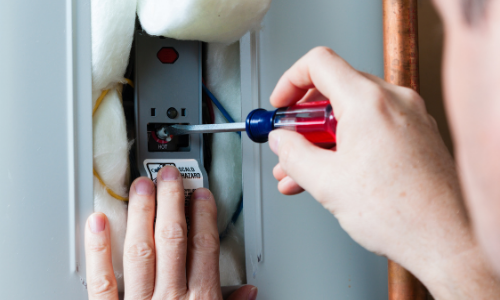Methods to Address the Most Common Heater Urgent Issues
Methods to Address the Most Common Heater Urgent Issues
Blog Article
Just about everyone may have their own unique notions in relation to Common Hot Water Heater Problems.

A water heater is among the most important standard devices that can be discovered in a house. With water heaters, you do not need to go through the stress of home heating water manually every single time there is a need to take a bath, wash, or the dishes. There is constantly an opportunity that your water heating unit would act up as with a lot of mechanical devices.
It is necessary to note any kind of little malfunction as well as tackle it quickly before things leave hand. A lot of times, your hot water heater starts to malfunction when there is an accumulation of sediments as a result of continual use. As a precaution, routine flushing of your water heater is recommended to prevent debris buildup and prevent useful failing.
Usual water heater emergency situations as well as exactly how to handle them
Insufficient hot water
Managing a not enough supply of hot water can be discouraging. It might be that the water heater can't support the hot water need for your house. To handle this trouble, you can attempt to adjust your heating system's temperature level dial and wait for a few minutes. If the trouble persists, you can request the assistance of a specialist plumber. Conversely, you can update your water heater to one with a bigger capability.
Varying water temperature.
Your water heater might start creating water of various temperature levels usually ice cool or scalding hot. In this situation, the first thing you do is to guarantee that the temperature level is readied to the desired level. If after doing this, the water temperature keeps changing throughout showers or various other activities, you may have a faulty thermostat. There may be a need to change either the home heating or the thermostat system of your hot water heater.
Leaky hot water heater storage tank.
In this circumstance, you need to turn off your water heating system, allow it to cool down, and also thoroughly look for the resource of the trouble. At times, all you require to do is to tighten a few screws or pipeline connections in situations of small leaks. If this doesn't work and the leakage lingers, you may need to utilize the solutions of a technician for a suitable substitute.
Blemished or odiferous water
When this happens, you need to know if the issue is from the container or the water resource. If there is no amusing scent when you run chilly water, after that you are certain that it is your water heater that is damaged. The odiferous water can be created by corrosion or the accumulation of bacteria or debris in the water heating system tank.
Conclusion
Some property owners disregard little caution and also minor faults in their hot water heater unit. This only brings about more damage as well as a feasible total break down of your device. You ought to take care of your hot water heater faults as quickly as they come near stay clear of even more expenditures and unneeded emergency problems.
With water heaters, you don't need to go via the anxiety of heating water by hand every time there is a requirement to take a bath, do the washing, or the recipes. It may be that the water heating system can't support the hot water need for your apartment. Your water heating unit could start creating water of different temperature levels usually ice scalding or cold warm. If there is no amusing scent when you run chilly water, after that you are certain that it is your water heating unit that is damaged. The smelly water can be caused by corrosion or the buildup of germs or debris in the water heating unit tank.
What’s Wrong With My Water Heater?
Not Enough Hot Water
You probably encounter this problem in the shower or while washing dishes. As you run your water, you’ll notice it starting to cool down. Turning up the hot faucet may not work, or it may only heat the water for a short period. Your hot water probably comes back and works normally one or two hours after you use it up.
If you’ve never had enough hot water, your heater may be too small for your home. If you haven’t had a problem until recently, there’s probably something’s wrong with your heater’s thermostat. Try adjusting it to see if you can feel a difference. Even if the thermostat’s working, the heating element itself could have burnt out. It’s also possible that a clog has restricted water flow into or out of the heater. Luckily, none of these problems are hard to fix, as long as you call them in early.
Water is Too Hot
Unregulated water heaters can make water dangerously hot. You probably have this problem if you’ve been scalded by your hot water. It’s also a likely culprit if you have trouble getting your faucets to produce a comfortable temperature. This problem is easy to fix, but it can also be a serious health hazard if you don’t address it. If you think your water is too hot, don’t doubt yourself; look into it!
Start by finding your heater’s thermostat and mark its position with a pen. Turn the thermostat to a cooler setting. Wait a couple hours to see if the problem is solved. If it isn’t, listen for boiling in the tank and look for water that comes out of the faucet steaming. In those cases, your temperature-pressure relief valve may be malfunctioning. This is a serious problem that can be dangerous, so you should have it looked at right away.
Discolored or Smelly Water
If all your water looks rusty or smells weird, there’s probably a problem with your pipes. If only your hot water looks weird, however, your water heater is probably at fault. Hot water discoloration comes in several varieties. It could look orange or brown-ish, taste rusty, or feel grainy. It could also look yellow or green-ish and taste gross or feel slimy. Either way, it’s a sign that there’s something wrong with your water heater’s tank.
Usually, hot water discoloration means sediment has built up in your tank. Sediment is made up of hardened minerals that accumulate on the inside of the water heater’s walls. When enough sediment builds up, it causes all kinds of problems–including your discolored water. Try flushing your water heater tank to clean out built up sediment. If the water still tastes rusty, your tank’s rust-preventing anode rod may have worn out. A pro can replace an anode rod easily, but without one, your tank could rust beyond repair relatively quickly.
Leaking
Water heaters can leak from several different places, and each leak means something different. If the leak is coming from a pipe above the heater, it’s possible the tank itself hasn’t been compromised. The cold inlet, hot outlet, and T&P pipes could all leak from above. Try tightening the problematic valve. If that doesn’t work, then the valve or pipe will have to be replaced.
If the leak is coming from the bottom of the tank, it’s important to determine exactly where it is. The leak could be coming out of the drain valve or your T&P valve below the tank. You can replace those valves and preserve the tank itself. If you notice the water tank itself leaking, however, that probably means it’s corroded beyond the point-of-no-return. Leaking water heaters are a big deal, so you should get yours replaced ASAP.
https://www.punctualplumberdallas.com/blog/whats-wrong-water-heater/

Hopefully you enjoyed reading our section on Is Your Water Heater Leaking?. Thanks a lot for spending some time to read through our blog post. Enjoyed our blog posting? Please share it. Let others locate it. We treasure reading our article about The Importance of Water Heater Maintenance.
Ensure leak-free homes. Report this page